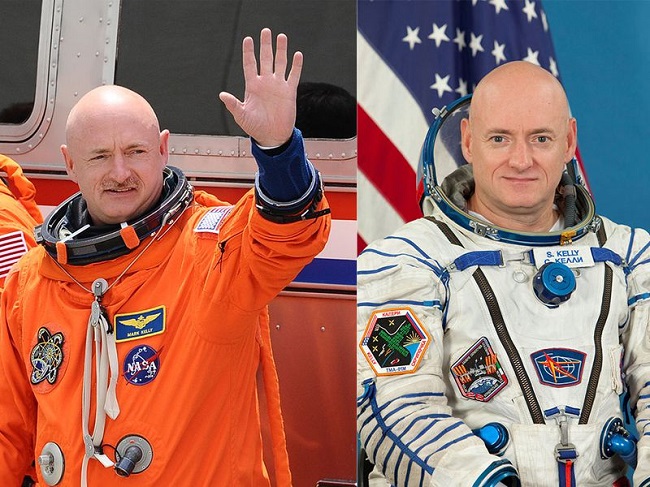For an Astronaut, space travel can be a life-changing experience. It can also alter a person’s mental perception of the universe but besides the mental and life changes, there is much more than an astronaut undergoes when traveling in space. Even as your organs are simply floating around in your body due to lack of gravity, the change isn’t an external one. A NASA study done in 2015-16 as part of its human research programme ahead of a planned mission to Mars has now revealed the results that show space can even alter your DNA. The NASA twins study may have been done in 2015-16 but after a grueling analysis and investigation by 12 universities including NASA biomedical laboratories and the National Space Biomedical Research Institute took time and now finally the first batch of results are out and it is mind-blowing for scientists around the world.
If you are still wondering what the Twin Study is all about, well NASA wanted to see how Space actually affects us internally. The twins study involved two twin astronauts, Scott and Mark Kelly. Scott Kelly spent almost a year in space aboard the ISS International Space Station with Russian Astronaut Mikhail Kornienko while Mark stayed on earth. The first preliminary results of the study revealed something astonishing, that Mark had grown two inches taller and there were marked changes in his DNA.
1What is the NASA twin study about?
Advertisement
The NASA twin study has yielded its first results that show space travel increases DNA methylation which is a process that turns genes on and off. It proves that DNA changes when you’re in space where one of the most visible of changes was Scott’s height that had grown by 2 inches. The study also observed that telomeres (regions at the end of DNA chromosomes in white blood cells whose purpose is for protection’) in Scotts DNA had gown longer. Telomeres usually reduce with age.
Said Doctor Chris Mason of Weill Cornell medicine and principal investigator of the study” “Some of the most exciting things that we’ve seen from looking at gene expression in space is that we really see an explosion, like fireworks taking off, as soon as the human body gets into space, with this study, we’ve seen thousands and thousands of genes change how they are turned on and turned off. This happens as soon as an astronaut gets into space, and some of the activity persists temporarily upon return to Earth.”

Image Source: www.thumbs-prod.si-cdn.com